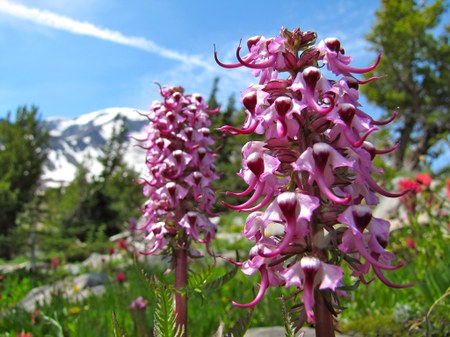
As a new-ish addition to The Mountaineers staff team, I have been looking for opportunities to get to know the complex interlocking departments that make the organization work. I work in Member Services, but recently had an opportunity to get the inside scoop on what it’s like to work on the conservation and advocacy. On January 25, I had the wonderful opportunity to spend a day in my hometown of Olympia, Washington, to speak with State Representatives and Senators about the importance of public lands in our state.
Although I was born and raised in Washington’s capital city and often frolicked around the pristine capitol campus as a child, I’ve had little exposure to the inner workings of the legislature or the ways that constituents can be involved in the process of lawmaking.
On the morning of the event, I arrived at the Olympia Women’s Club early for a short training to learn how to most effectively speak with Senators and Representatives. Amidst heaps of tiny bagels and mini muffins, the room was bustling with greetings, introductions, and conversations. Some people were partnered up to strategize ways to most effectively influence their lawmakers, studying each Representatives’ histories and affiliations to find the most direct routes to their hearts and brains. Others excitedly reconnected over coffee and conversation.
After our brief training, we strolled up the hill to the granite dome of the Capital to thank our Representatives for funding the Washington Wildlife and Recreation Program, and to urge them to continue robustly funding the program for years to come.
Why is the Wildlife and Recreation Program Important?
The Washington Wildlife and Recreation Program (WWRP) is the state’s premier conservation and recreation program. It provides matching funds for the creation, expansion, and maintenance of local and state parks. It also protects wildlife habitat and preserves working farms. The Washington Wildlife and Recreation Coalition is the chief advocate for the WWRP. This year, the legislature was able to fund the WWRP at the 80 million dollar level, which was a good compromise for the 120 million that had been requested.
Why is it important for The Mountaineers to support the WWRP? Most of our Mountaineers activities happen on public lands, many of which are state lands funded by WWRP or that could use funding from WWRP. WWRP funds many ‘front-country’ outdoor places, like parks and closer-in hiking resources. These are important to our community because they serve as a the ‘gateway’ to the backcountry. The more opportunities people have to get outside near to their homes, the more opportunity they have to create a connection with nature. The deeper the connection, the more work we will do to protect these places.
In doing the initial research for this event, I learned that many of my favorite places to recreate have benefitted from the WWRP program, including the Nisqually National Wildlife Refuge. The refuge is very close to my home and heart. It is a place that I frequent often when I’m back home and have always found the luscious ecosystem and abundant wildlife to be rejuvenating and awe-inspiring. Realizing this personal connection brought another layer of meaning to my day at the capital.
Back to the Hill…
Throughout the day I convened with different cohorts of people to speak with Representatives of the 46th district. For each fifteen minute meeting, I was grouped with 2-6 other volunteers and employees of other organizations including Conservation Northwest, Washington Trails Association, Evergreen Mountain Bike Alliance, and the Student Conservation Alliance, among others. It was really exciting to dive into conversations about all the intersections of the organizations we represented, build fast connections, and work together to create a personalized, unified message to deliver to each representative. I was impressed by the array of needs represented and inspired to see that our diversity strengthened our ability to be convincing and powerful.
Meeting with Representative Pollet, Representative Valdez, and Senator Frockt was the first time I really felt that I had a connection to the government. For much of my life I have felt pretty clueless and powerless as to what is the most impactful way to have your voice heard as a constituent. I never really knew where to look for opportunities to speak to representatives in an organized fashion. Now I know that speaking with representatives is one hundred percent possible, very accessible, and incredibly important to do.
I have been writing letters, signing petitions, and making phone calls for years, but to be a real live person with a voice, a genuine message, and physical presence felt very significant and impactful. The whole day really drove home the meaning of the phrase, “The Personal is Political.”
Moving forward, I know that I will seek out more opportunities to speak with representatives and keep closer track of local land use legislation and encourage others to do the same. For ideas of where to get started, check out The Mountaineers Legislative Trail Map.
 Elaine Kelly
Elaine Kelly